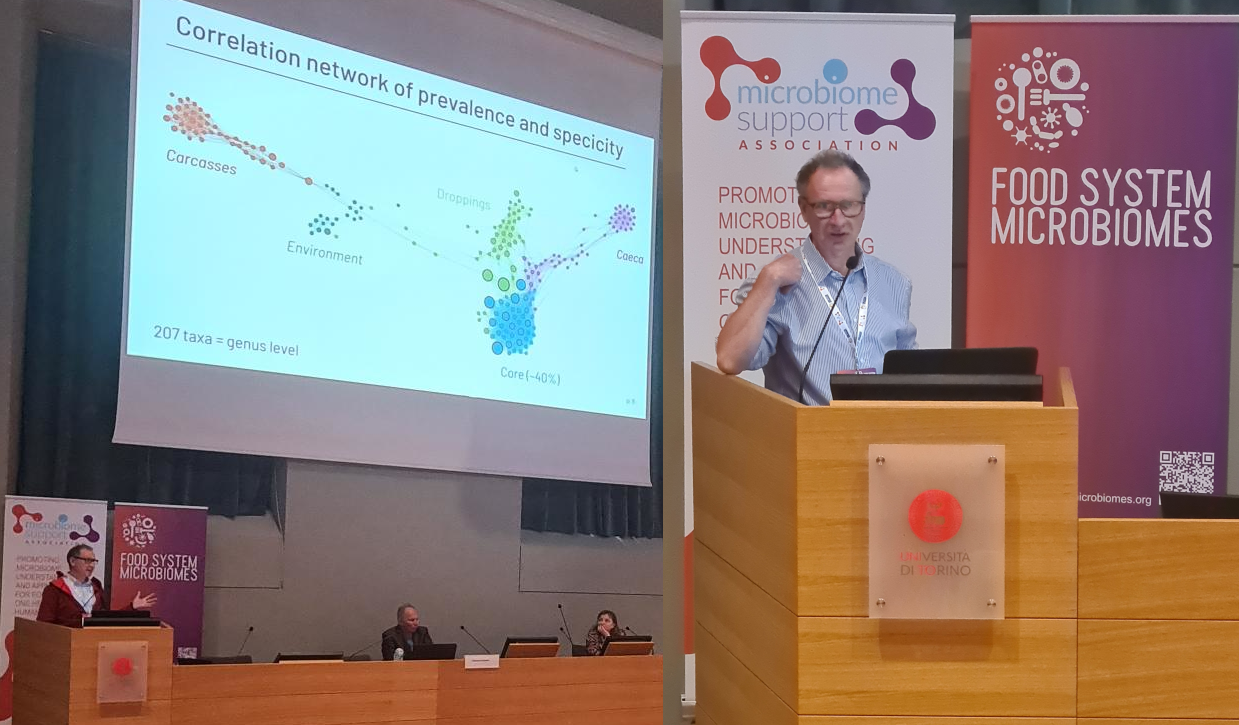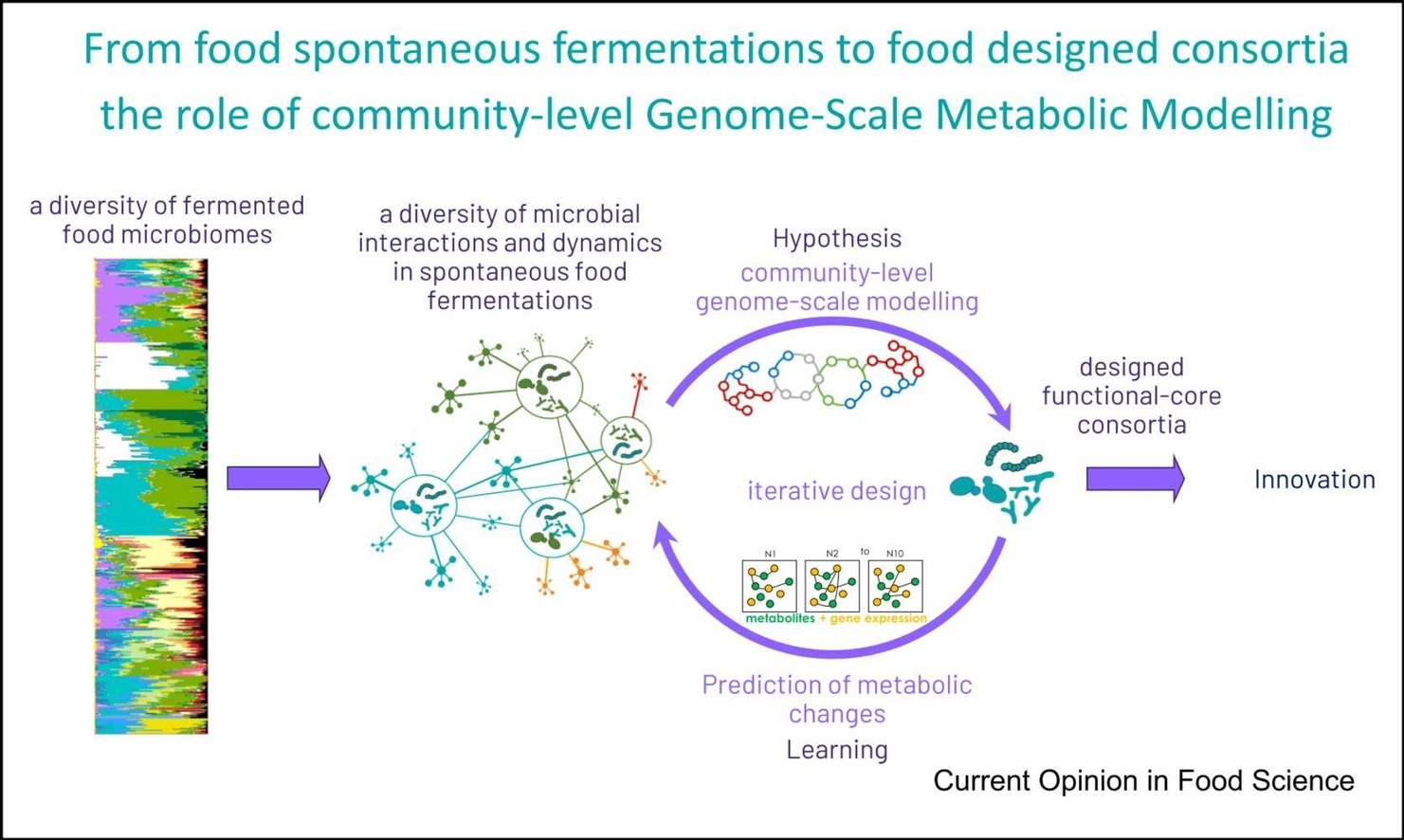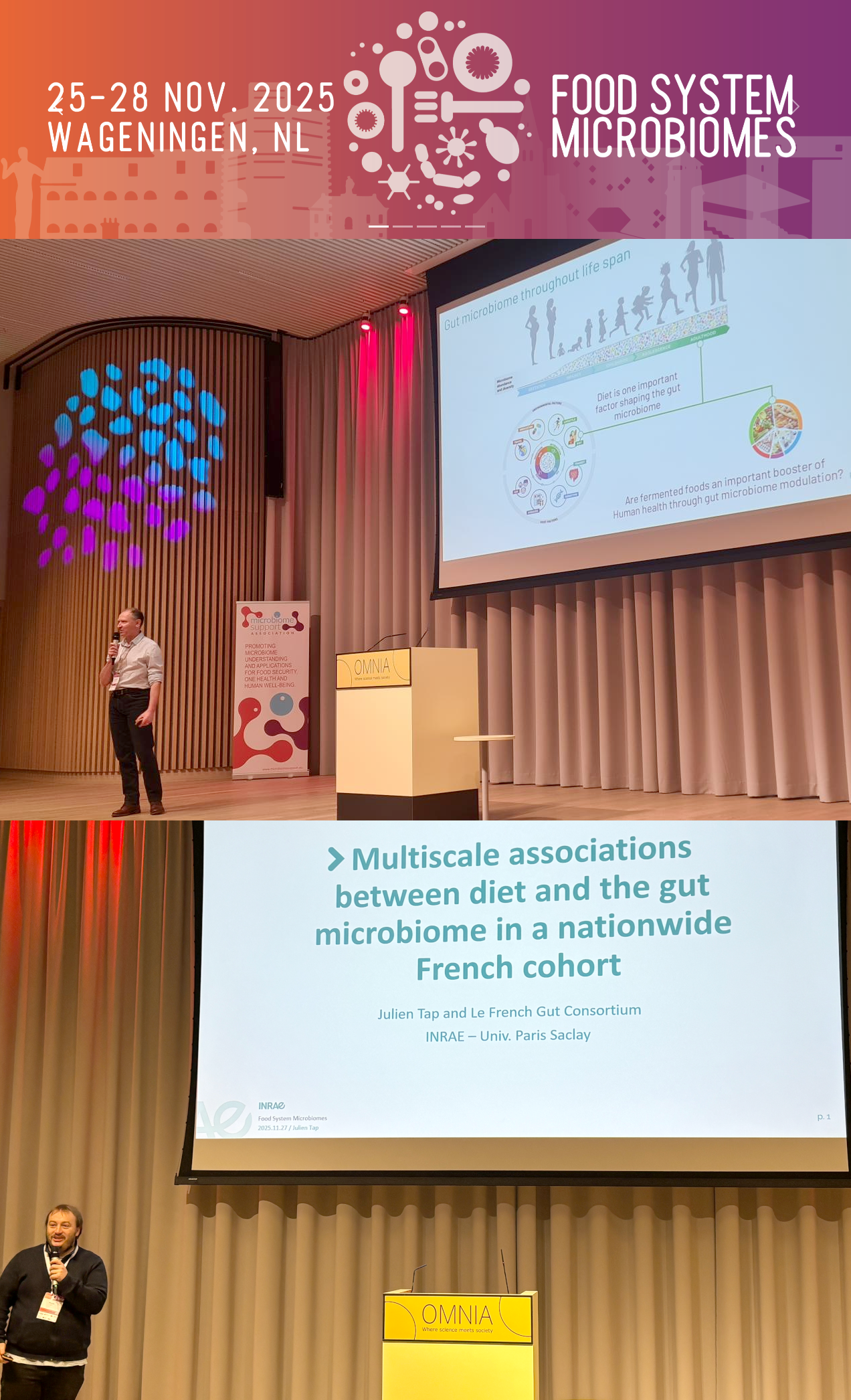Published: May 17, 2024 by FME Lab
Last week, in the frame of the 1st Food System Conference in Torino, Stéphane was pleased to show for the first time the results of the Holoflux egg-to-meat project.

In this project, a consortium of 7 INRAE laboratories collaborated for a very ambitious experimental design aiming at studying the impact of farming practices (claustration versus open field), and therefore the impact of the diet on several chicken microbiomes (Fecal, Caecal …). The project revealed how the different microbiomes are changing (or not) with the diet and how the microbiomes maturate during the longitudinal (age) study from egg-to-meat. During the rest of the conference, Stéphane received a lot of positive feedback from the participants with strong encouragements for publishing the outcome of this study.


